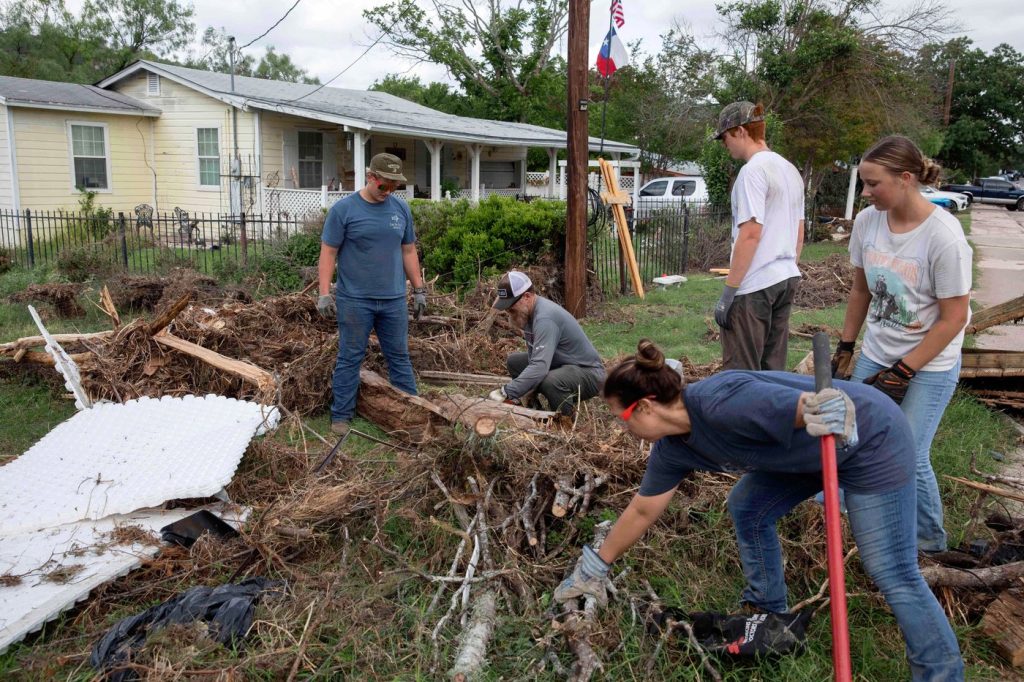In Comfort, Texas, a chance meeting ignited a significant community response following recent devastating floods. Paul Welch, in dire need of assistance, was approached by a stranger in a pickup truck who asked if he needed help. Welch's affirmation led to a transformative day when dozens of community members arrived at his and his partner Elizabeth Hastings' flood-damaged cabin on the Guadalupe River.
The July 4 floods caused severe damage, inundating their home and destroying their RV and most belongings stored in their barn. With the relentless work of volunteers, including an Army unit from Fort Hood, the property began to resemble a construction site as debris was cleared and essential repairs started. Welch noted, “Up until yesterday, it was pretty bleak,” emphasizing how the community's support instilled renewed hope.
As efforts intensified across Kerr County, over 1.5 hours northwest of San Antonio, many volunteers, some previously strangers, united through social media and local outreach to assist those affected. A flood of volunteers arrived, often armed with tools and equipment to aid in debris removal and recovery efforts. It was a scene echoed in many homes throughout the area, where survivors expressed gratitude for the unexpected help that arrived unbidden.
Daniel Olivas, whose house was among those overtaken by floodwaters, described how “33 angels” appeared to help salvage his home, underscoring the spontaneous nature of community support. Businesses also joined in; for instance, the RV seller Camping World provided a pre-owned RV for Welch and Hastings to live in temporarily, and a plumbing company offered free services to neighbors in need.
Analysis reveals that the volunteers’ actions contribute to coping mechanisms in the wake of trauma. Dr. Adrienne Heinz, a clinical research psychologist, explained that “purposing,” or finding meaning in response to adversity, can foster resilience and promote healing among individuals impacted by disaster.
Colleen Lucas, another flood survivor from Ingram, shared her appreciation for the international charity Operation Blessing, who assisted her family in recovering belongings after their car was submerged in floodwaters. This outpouring of community spirit serves as a testament to the human capacity for empathy and connection, as many individuals found healing through giving assistance. Lucas expressed her commitment to “paying it forward” once she’s back on her feet, indicating a desire to continue the cycle of generosity she experienced.
The collective efforts in these communities paint a powerful picture of resilience in the face of disaster. The response illustrates how shared challenges bring people together, displaying not only solidarity but also a profound display of humanity. In a time marked by struggle, the coming together of volunteers, neighbors, and businesses encapsulates the strength of community support in addressing the aftermath of natural calamities.











